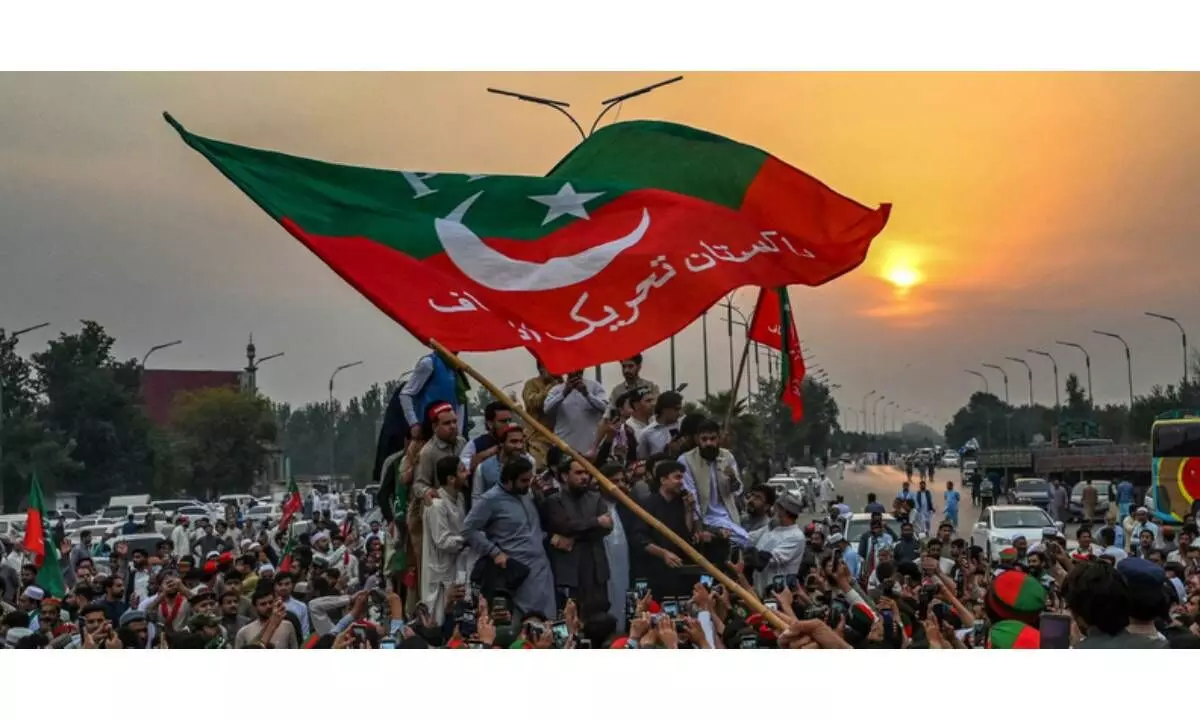Pakistan’s power dynamics up for grabs as Khan-backed independents lead race
Pakistan’s elections have ignited a spark of hope for a more democratic future, but the journey is far from over
image for illustrative purpose

In what appears to be a seismic shift in Pakistan's political landscape, the preliminary results of the February 8 elections indicate a stunning upset for the power dynamics directed by the Pakistani Army, commonly referred to as ‘The Establishment.’ The initial voter trend signals a significant challenge to the authority of the country's military establishment. The unexpected surge in support for Imran Khan's Pakistan Tehreek-e-Insaf (PTI) party candidates, who contested as independents, must have rattled the power brokers in the army-controlled nation.
As of the compilation of this report, the Pakistan Election Commission had announced that out of the 148 results declared, 66 independent candidates, mostly aligned with Khan's party, have clinched victory out of the 265 contested seats. This remarkable achievement positions them as the foremost contenders, outpacing Nawaz Sharif's party, which has secured 46 seats. Based on current trends, independent candidates could potentially influence the National Assembly significantly.
However, even before the official declaration of final results, there is widespread concern and allegations of result manipulation by the establishment. Accusations of electoral malpractice have surfaced, fuelling apprehensions regarding the credibility of the election and the integrity of the vote. Meanwhile, Pakistan suspended mobile phone and internet services nationwide on Thursday, citing the need "to preserve order amidst anticipated unrest surrounding the contentious polls."
During a panel discussion on Geo News, Hamid Mir, a prominent Pakistani journalist and columnist, raised concerns about the delay in announcing election results. He hinted that the official results contradict the information he obtained from his sources from counting booths. Mir went on to advise Nawaz Sharif and the establishment to prioritize decisions that align with the best interests of Pakistan, especially considering the prevailing trends indicating independent candidates leading the race.
General Munir, the head of Pakistan's Army, had calculated that targeting Imran Khan and his leaders through arrest and imprisonment would weaken PTI's political influence. However, these tactics have backfired. TV channel commentators are calling the results so far as ‘PTI's lahar’ or ‘wave.’ The resounding victors of independent candidates belonging to Khan's party can solidify his position as a formidable leader but also embolden him to confront the entrenched interests of the military establishment.
The ongoing televised debates around election results reveal a palpable tension among anchors, commentators and political observers, hinting at a growing dissatisfaction with the Army's interference in the electoral process. The electorate's rejection of established political norms and the military's influence represents a watershed moment in Pakistan's democratic evolution.
The headline-grabbing outcome of these elections so far underscores a clear message: Pakistanis have voted against the stranglehold of the military establishment, opting instead for a future where their voices are heard and respected. The initial verdict reflects a collective desire to break free from the grip of the Army and its intelligence agencies, signalling a demand for greater accountability and civilian governance.
Vote counting is ongoing in Pakistan following Thursday's general election, in which accusations of rigging, sporadic violence, and a nationwide shutdown of mobile phone services have clouded the results. The current verdict is divided, with the three main contenders - Independents (PTI), PML-N, and PPP - securing 66, 46, and 32 seats, respectively, out of the total 148 results declared.
If no single party attains a majority, the party with the largest share of assembly seats can establish a coalition government. However, if independents maintain their lead, the question of who will emerge as the leader becomes paramount.
For General Munir and his cohorts, the results pose a critical dilemma. They must choose between accepting the electoral outcome if independents emerge as the largest shareholders or resorting to electoral manipulation, risking widespread unrest and potential civil conflict akin to the turmoil of 1971. The international community must be closely watching the developments in Pakistan, for it is an unpredictable and nuclear nation.
As of the last report, the defeat of established political figures, including Maulana Fazal Rehman, further underscores the electorate's rejection of traditional power brokers. The rise of independent candidates, many of whom are political novices, suggests a grassroots desire for change and a rejection of entrenched political dynasties.
As Pakistan stands at a crossroads, the outcome of this election holds profound implications for its democratic future and control of Pakistan's establishment. The people have spoken, and now it is up to their chosen leaders to deliver on their promises of change and progress.

